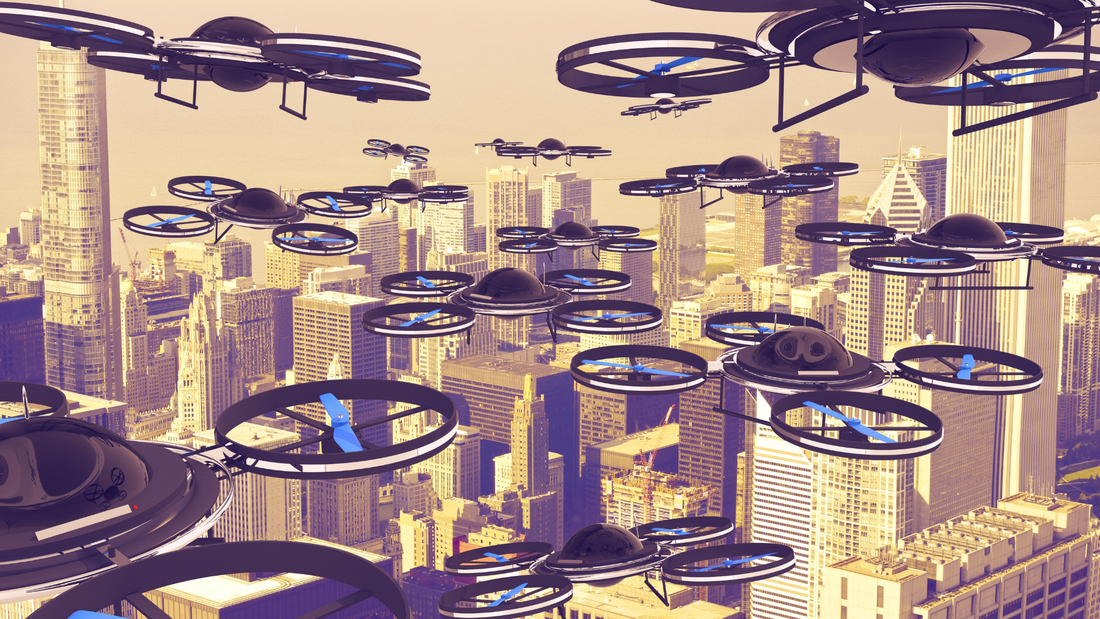Long Lake Township v. Maxon In a brief before the Michigan Supreme Court, PPSA alerted the court to the danger of intimate searches of home and residents by relatively inexpensive drones now on the market.
Commercially available drones have thermal cameras that can penetrate beyond what is visible to the naked eye. They can be equipped with animal herd tracking algorithms that can enhance the surveillance of people. Drones can swarm and loiter, providing round-the-clock surveillance. They can carry lightweight, cell-site simulators that prompt the mobile phones of people inside the targeted home to give up data that reveals deeply personal information. Furthermore, PPSA’s brief states that drones “can see around walls, see in the dark, track people by heat signatures, and recognize and track specific people by their face.” These are some of the ramifications of a case now before the Michigan Supreme Court. This case began when Long Lake Township in Michigan, suspecting that Todd and Heather Maxon had violated an agreement not to add to a scrap pile of old cars on their five-acre estate, hired a private drone photography business to investigate. No warrant was issued for this surveillance. Michigan’s top court is now reviewing the ruling by a lower court that found that while warrantless drone surveillance of a residence violated the Fourth Amendment, the evidence should not be excluded from this civil case. PPSA argues that this lack of exclusion of tainted evidence threatens to open a Pandora’s box of pervasive surveillance that could pierce the privacy of virtually anyone inside any structure. PPSA cites ample precedent for the exclusion of the Maxon evidence. In Carpenter v. United States (2018), the U.S. Supreme Court made it clear that the Fourth Amendment applies to digital technologies. In that case, the Court excluded location information derived without a warrant from mobile phones. In Kyllo v. United States (2001), the Court found that the use of thermal images – which reveals the heat signature emanating from inside a home – requires a warrant. Compare Kyllo’s comparatively mild surveillance to the “stereo-camera” configuration of many commercially available drones that enable reconstruction of 3D images from 2D cameras. Such surveillance goes well beyond Kyllo, in which police simply used heat radiating from the external surface of the house to detect marijuana cultivation. “Ready-made drone packages, specifically designed for thermal surveillance flights, with the ability to create 3-dimensional maps from their footage, can be had for around $6,000,” PPSA informed the court. “For less than $10,000, police can obtain a specialized drone with superhuman sensory abilities and better maneuverability than a multi-million-dollar helicopter or plane,” PPSA told the court. Drone’s warrantless extraction of personal information far exceeds the Carpenter warrant requirement. PPSA’s filing addresses an error by the lower court. The Michigan Court of Appeals recognized that the Township had violated the Fourth Amendment in its use of drones. That court nonetheless found that the exclusionary rule did not apply in Maxon. PPSA declared: “The Exclusionary Rule is a judicially crafted remedy that gives teeth to the Fourth Amendment by excluding illegally obtained evidence when the privacy value of enforcing Constitutional rights outweighs social harm from excluding evidence.” PPSA concluded: “If the Fourth Amendment is to have any real meaning in this context, evidence obtained by illegal drone surveillance must be subject to exclusion.” The Michigan Supreme Court is hearing oral argument on this case this week. PPSA will follow the outcome of this important, precedent-setting case. Comments are closed.
|
Categories
All
|


 RSS Feed
RSS Feed